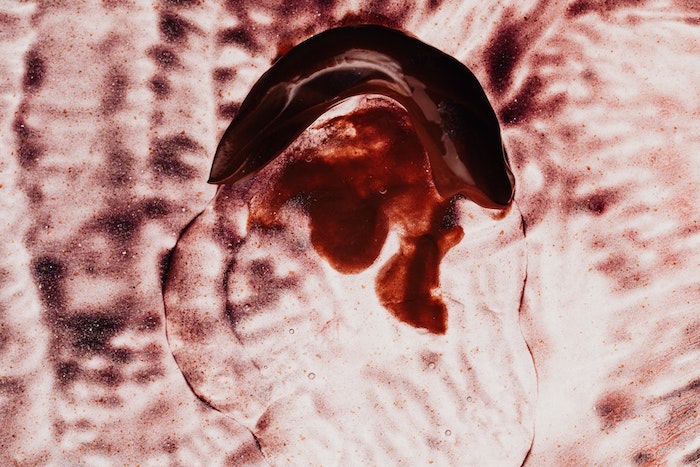Gang, I think we’re all agreed that despite the problems that come with hormonal birth control, it’s a damn good thing. The internet, though, seems pretty convinced that using birth control long term can affect your natural fertility and eggs in a negative way. So, if you’re even mildly worried about your fertility and contraception methods, I’m here to take away some of that stress.
Can hormonal birth control harm my natural fertility?
The Good News: Hormonal BC doesn’t cause infertility
Whatever type of contraception you use, there is no evidence at all that it will stop you from conceiving when you decide that it’s time. That’s the short answer at least. As with all things womb-related, the reality can be a tad more complicated. But on the whole, restoring your fertility post-birth control really is as simple as quitting birth control.
That said, each of the hormonal methods has its own timetable when it comes to restoring your natural cycle. For instance, after stopping the pill, it can take up to three months for everything to start working again. But baby-making can happen right away, within a couple of weeks. Likewise for the coil, patches and implants. In fact, regardless of the delivery system, once stopped, over 80 % of women conceive within a year.
Short, Sharp Shock
Unless that is, you’ve chosen the annual injection or shot. Because things get a little trickier once it’s onboard. Believe it or not, once the protection from the injection has run out, it can still take up to two years for your menstrual cycle to settle. Yup. Two years. Something to think about if you’re wanting to start a family any time soon. Once the two years have passed, though, pregnancy rates go back to the national average, around 80 % in 12 months.
But what happens if you’ve been taking hormones in one way or another for years? Is there some kind of build-up that can cause conception issues or disrupt your natural fertility? Despite what the internet will tell you, there is no evidence of any kind of effect on your natural fertility, no matter how long you’ve been using them. And believe it or not, a 2013 study by Boston University found that using hormonal birth control for five years or more actually increases your fertility. Weirdly, in those who have been using it in the short term, for two years or less, fertility mildly decreased.
The return of the cycle – natural fertility
Egg-centric cycles
So, it can take a while for your body to adjust and start ovulating on a regular basis. But that isn’t the only issue that can cause conception difficulties post-pill. Firstly, there’s a chance that your natural, normal cycle won’t be as regimented as it was while under the influence of extra hormones. The pill, patch, coil and implant all give a slightly false, regular cycle, and those changes can make conception tricky. Mostly because it can take some getting used to.
Conditions that affect your natural fertility
Then there are the underlying conditions that hormones can mask, including endometriosis and polycystic ovary syndrome, both of which can cause conception issues. And the symptoms that might point to those conditions may only be visible once your normal cycle has been reestablished. They could include erratic, painful periods, hair growth, acne, moodiness… But because the hormones provide a false picture of your cycle, forcing regularity and postponing discovery of those issues, you may well have no earthly idea that you’re a sufferer.
And, depending on how old you are, hormonal birth control can hide the natural signs of ageing, including perimenopause. Once again, those symptoms will only be visible once you stop the hormones. That can mean irregular or skipped periods, making tracking your cycle increasingly difficult. Sadly, it also means, if you’re in your late 30s or early 40s, that your natural fertility may already be in decline. And until you move away from the pill, you’ll have no idea that it’s happening.
One year is enough
Generally speaking, if you’re under 30 and it’s taking more than 12 months to conceive, or six months if you’re over 35 (“geriatric pregnancy age”), it’s time to see a doctor. Rule out any underlying medical conditions, such as the above-mentioned endometriosis and PCOS, that might be contributing to the problem. And if you’re still having trouble, book yourself a fertility test. That will most likely include hormone checks and will tell you exactly where you’re at, conception-wise. And if you’ve got a male partner, bring him along. He’ll need fertility testing too.
And even if it turns out that baby making might not be possible in the, ahem, traditional way, you’ve still got options. One of which is IVF, and here’s a fun, full-circle fact for you. Taking the pill just before you begin IVF treatment can actually increase your chances of conception. Wild, right? As always, though, consult your fertility specialist before making any such decisions.
So, don’t panic if you don’t get pregnant as soon as you ditch the hormones. Give your body time to adjust and get familiar with your natural cycle once you’ve stopped. Birth control gives us the amazing ability to control our fertility when we don’t want children. But those freedoms mean that taking control of your individual fertility when you do want children is just as important. It’s time we started seeing it that way. Otherwise you can always try natural contraception if it’s better for you.





